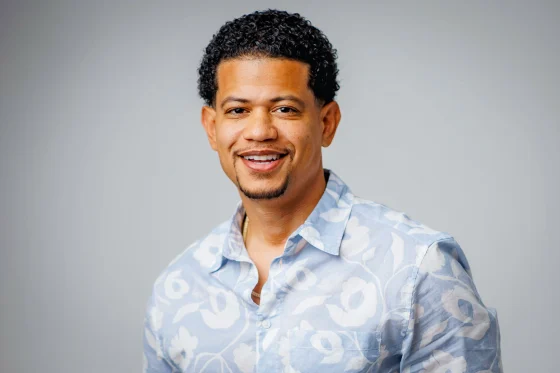They’re uncovering their ancestry — and questioning their families’ racial narratives
Share
Explore Our Galleries
Breaking News!
Today's news and culture by Black and other reporters in the Black and mainstream media.
Ways to Support ABHM?
By Edward Rueda, NBC News

Comedian Gadiel del Orbe always heard his brown-skinned Dominican father say their family came from Spain or the Canary Islands, but their more obvious African roots never came up.
When del Orbe got his DNA test results four years ago, he learned his direct maternal line was related to the Tikar people of Cameroon. He didn’t expect to get emotional, but he started crying once he heard the Tikar are renowned dancers.
“I love dancing. I do comedy, but dancing is my life — bachata, merengue, salsa,” del Orbe said. “To know that the Tikar people are known for dancing just answered questions about me. Things about me align with my ancestors.”
For del Orbe and other Latinos, technological advances and greater access to DNA testing are proving what they long suspected: Their family histories, which were long focused on their white, Spanish ancestry, include African roots and the legacy of slavery.
Family ties to both enslaved and colonial ancestors — including slave owners — can now be uncovered in free online databases, digitized archives and AI-powered indexing, which provide unprecedented access to documents from Latin America and the Caribbean.
Discovering these personal ties is often an emotional process, and many Latinos are using that knowledge to rethink their own identities and their past. They’re also filling the gaps of incomplete family histories that have been passed on for generations.
Continue reading to learn why this information is sometimes hidden.
Genealogy can be a powerful connection to difficult pasts, including enslavement, while also revealing meaningful roots.









Comments Are Welcome
Note: We moderate submissions in order to create a space for meaningful dialogue, a space where museum visitors – adults and youth –– can exchange informed, thoughtful, and relevant comments that add value to our exhibits.
Racial slurs, personal attacks, obscenity, profanity, and SHOUTING do not meet the above standard. Such comments are posted in the exhibit Hateful Speech. Commercial promotions, impersonations, and incoherent comments likewise fail to meet our goals, so will not be posted. Submissions longer than 120 words will be shortened.
See our full Comments Policy here.